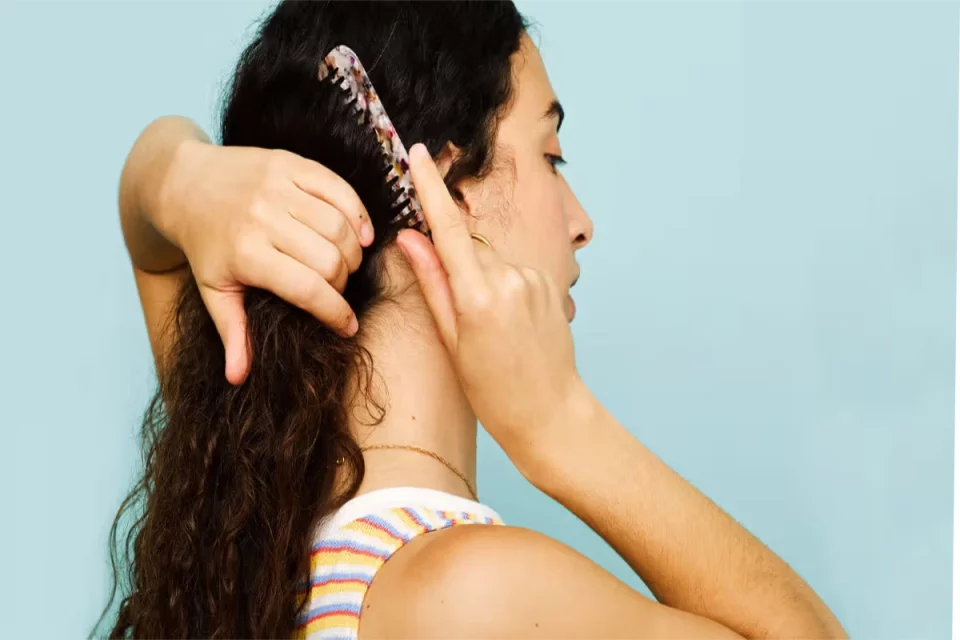Hair problems can be your number one enemy if you’re always using chemically-inclined hair products that badly affect its texture and smoothness. Moreover, you can slightly expect that these chemicals can bring bad results to your health, but you should also know that your poor diet and nutrition may act on your hair health, which can lead to serious problems like hair loss.
The most common reasons for getting hair problems can be hereditary, which means that your family may already have a history of hair dilemmas and it was transferred to you too. Another common reason is the stress that comes after having various emotions and shocking turns of events in life. Worry no more, as this article will help you check on your diet that may be affecting your hair health, discuss some of the common hair problems, and the ways on how to deal with them.
Table of Contents
1. You’re Low In Protein Diet
Your hair is mostly made out of protein, like keratin that builds strong hair follicles on your head. Hence, it’s important to take protein if you don’t want to have hair loss or if you want to prevent it. You can get protein from meats like beef, pork, or lamb.
If you’re a vegetarian that doesn’t eat meat, you can just choose the best shampoo for thinning hair so that you can avoid eating it. If you’re already experiencing hair loss due to stress from your work or other personal problems, you can take immediate action by buying and applying shampoos and conditioners that can prevent hair loss.
2. You’re Not Eating Enough Food With Calcium
Consider drinking vitamins or eating food with calcium if you want to have healthy hair. Not consuming enough calcium can have negative effects on your hair, like being dry and having mild hair loss every time you use hair products with strong chemicals. You may also have problems like a family history wherein it’s inevitable to not have hair problems. For example, you’ve gone to a dermatologist because you want to find the cause of your hair problem. Therefore, your dermatologist can prescribe you a vitamin or diet that contains calcium.
3. Low Iron and Zinc
Iron and zinc can help you in maintaining your hair’s health which can be included in your diet. They help you build stronger keratin or hair follicles which is essential for hair development and health. You can get Iron and Zinc in seafood and red meat. Additionally, those who are vegetarians can get these in beans if they don’t want to eat red meat. Your poor diet and nutrition should be your priority.You can have products and take foods that can help you prevent hair loss.
4. You’re Eating Too Much Food With High Mercury
If you eat food that contains a lot of mercury, hair loss may start because there may be too much mercury in your food diet. Your hair follicles may start falling out because your scalp has inflammation, which also adds to possible dandruff, dry scalp, and damaged hair. You can avoid fish such as tuna or sushi which are rich in mercury.
5. Too Many Sweets
Your hair and nails can also be affected negatively if you eat too many sweets or food with lots of sugar. If you consume too much sugar, your body will produce many insulins that may affect your hair and may result in hair loss. Furthermore, you should also avoid sweet foods so that they won’t gravely affect your physical health and you won’t develop diabetes.
6. Excess Consuming Of Vitamin A
Vitamin A may be healthy for the eyes so that it can help in improving your eyesight, but you should still balance it on how you consume it. Moreover, it can still affect your hair because it can cause hair thinning too.
Conclusion
If you already have your proper diet and food that can help improve your hair health and can also prevent your hair loss, you should maximize the things that you can access to help your hair from falling. You can maintain a strict diet. You can also add more products like hair shampoo and conditioner for your thinning hair.
Moreover, it’s also wise that you’ll also check on your meals and health, not just the products that you use for your hair because this can also greatly affect your hair’s condition, whether it’s severe or not. Either way, you may ask your dermatologist for recommended products and diet to help you with your common hair problems.

